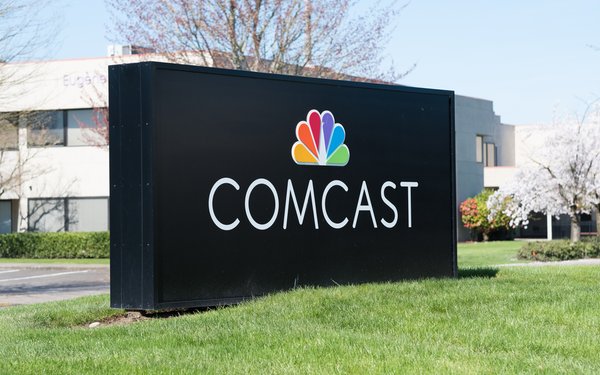
Faced with a new
controversy related to online privacy, Comcast said this week that it doesn't draw on information about the sites broadband users visit for advertising or targeting.
The company said Thursday
that it deletes information every 24 hours about the domain names people navigate to online.
“Millions of Comcast customers look up billions of addresses online every day,” Chief
Privacy Officer Christin McMeley wrote on the company's blog. We’ve never used that data
for any sort of marketing or advertising -- and we have never sold it to anyone.”
The company's statement came one day after the publication Motherboard reported on Comcast's efforts to
rally opposition on Capitol Hill to Google's plan to encrypt domain names.
advertisement
advertisement
Google recently unveiled plans to start using the DNS over HTTPS protocol (DoH) to encrypt domain name requests --
but only for the small proportion of users who configure their computers to use a domain-name system provider that supports encryption.
Last month, the major broadband industry organizations
raised concerns about the new protocol to Congress.
The broadband groups said in a September 19 letter to Congress that they were “concerned about the potential for default, centralized resolution of DNS queries, and the collection of the majority of worldwide
DNS data by a single, global internet company.”
Comcast has also been lobbying Congress separately, hoping to rally opposition to Google's encryption plans, according to Motherboard. The publication reported on Wednesday that it had obtained a
presentation Comcast has been providing to lawmakers.
“While cloaked as enhancing user privacy, Google's DNS encryption will in fact vastly expand Google's control over and use of
customer data, and will result in the complete commercialization of DNS data for Google's own ends,” that presentation states.
Google has said its plans were mischaracterized by
broadband organizations, and that it has no intention of centralizing the web, or changing people's existing DNS providers to Google by default. “Any claim that we are trying to become the
centralized encrypted DNS provider is inaccurate,” a company spokesperson said last month.
Privacy advocates say the shift to encrypted domain names will benefit users by making it harder
for outsiders to intercept traffic, including sensitive data about their web browsing.
One day after Motherboard posted the material reportedly prepared by Comcast, the cable provider touted
its privacy policies in a blog post.
“Where you go on the Internet is your business, not ours,” McMeley wrote. “As your Internet Service Provider, we do not track the
websites you visit or apps you use through your broadband connection. Because we don’t track that information, we don’t use it to build a profile about you and we have never sold that
information to anyone.”
Several years ago, Comcast opposed Federal Communications Commission privacy regulations that would have required broadband providers to obtain consumers' opt-in
consent before drawing on their web-browsing activity for advertising. The FCC passed those rules in 2016, but the regulations were revoked by Congress the following year.